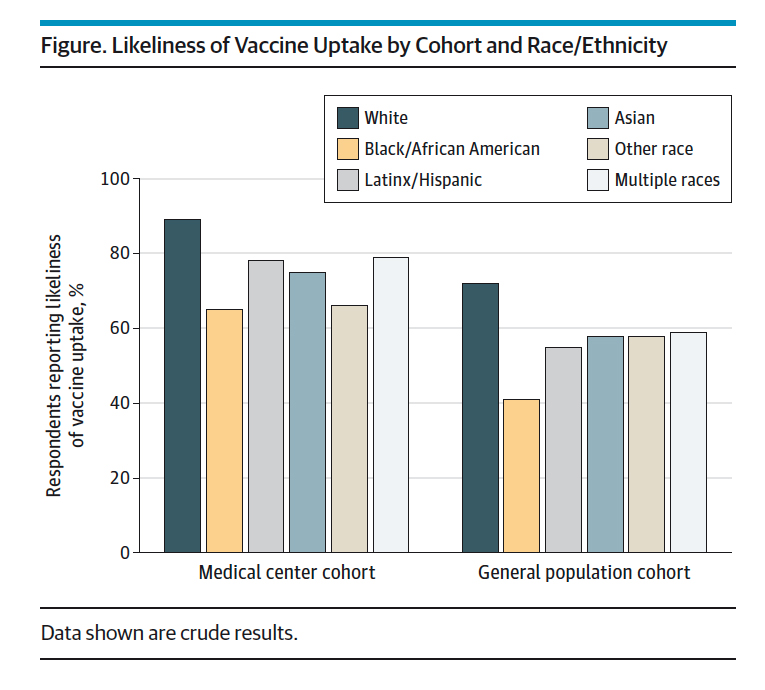The survey was completed in the San Francisco Bay area, comparing about 3900 randomly selected households and 2500 healthcare workers who are agreed to bi-monthly testing for COVID-19.

While being a healthcare worker reduced vaccine hesitancy compared to the general population, the clear distinctions based upon race and ethnicity held for both groups. The, at this point, usual reasons were given, less confidence in the vaccine working, less confidence in the company manufacturing the vaccines (this was during the period when only Pfizer and Moderna were available), and less trust in the approval process.
The researchers end by saying, “a focus on intentions must not distract from the importance of ensuring equitable access to vaccination.” While this is true, to “acknowledge a history of racism that has degraded the trust- worthiness of health and medical science institutions among historically marginalized populations” will not on its own repair broken trust.
If you look at those three prominent objections to getting the vaccine, Tuskegee was not mentioned at all. The LA Times, in their reporting,
“The hesitancy is there, but the refusal is not. And that’s an important difference,” said Warren, who later joined Katz in editing a book about the research. “Hesitant, yes. But not refusal.”
Tuskegee was not the deal breaker everyone thought it was.
These results did not go over well within academic and government research circles, Warren said, as they “indicted and contradicted” the common belief that low minority enrollment in research was the result of Tuskegee.
“That was the excuse that they used,” Warren said. “If I don’t want to go to the extra energy, resources to include the population, I can simply say they were not interested. They refused.”
Repairing trust requires time and actions, not words. And those actions should occur now as we aggressively seek ways to convince the hesitant.
Source: Association of Race/Ethnicity With Likeliness of COVID-19 Vaccine Uptake Among Health Workers and the General Population in the San Francisco Bay Area JAMA Internal Medicine DOI:10.1001/jamainternmed.2021.1445




